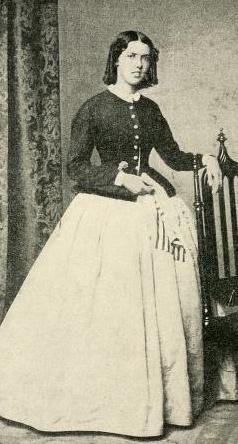Soldiers' Free Library facts for kids
The Soldiers' Free Library was a special place created in Washington, D.C. during the American Civil War. Its main goal was to give Union soldiers books and other things to read. But it also offered useful items like crutches, paper for writing letters, and clothes. Many of these items were handmade gifts from women's groups who wanted to help the troops.
Contents
How the Library Began
The Soldiers' Free Library was started by John A. Fowle and Elida Rumsey. They were relief workers during the war and got married in 1863. They came up with the idea for the library in 1862. They sent out messages asking for donations of books, especially "hospital reading" for soldiers who were recovering.
To raise money, Elida Rumsey and her husband sang patriotic songs at special concerts. Some of these songs were even written by John Fowle! Other important people who helped from the very beginning were Rev. Theodore T. Munger and Mrs. Walter Baker from Dorchester, Boston.
Life During the War
The Soldiers' Free Library first opened its doors in October 1862. It started in the Rumsey family's home, with Elida Rumsey acting as the first librarian. At the beginning, it had about 1,500 books and many magazines.
Soon, so many donations came in that the house became too small! A soldier named Samuel K. Crozier, who was recovering from an injury, took over as librarian. The library then moved to its own separate space. It was open to all military and civilian people, no matter their race.
What the Library Offered
Donations kept coming in, not just books! On New Year's Day in 1863, every soldier who visited the library received an apple, a gingerbread cake, and special paper for writing letters.
In the spring of 1863, the United States Department of the Interior gave the library a building in Judiciary Square. This new space was much bigger. It could store donated medical supplies, food, and clothing, along with all the books. It also had a reading room where soldiers could relax. Tables, ink, and even postage were provided so soldiers could write and send letters home.
Later, Philo Tower became the librarian after Samuel Crozier. Philo Tower was a soldier from New York who used to be a clergyman. He loved giving talks about the library's important work.
The Collection and Activities
The Soldiers' Free Library grew to hold about six thousand books and other written materials. Popular donations included Bibles, works by Shakespeare, and Uncle Tom's Cabin. But the collection also had stories for young readers, science books, novels by Charles Dickens, poetry, hymnals, and history books. People who donated, including grateful soldiers, also gave the library subscriptions to popular magazines.
Beyond just reading, the library was a busy place. It hosted concerts for wounded soldiers, classes, prayer meetings, and church services.
After the War
When the war ended, the books from the Soldiers' Free Library were given to the YMCA. The building itself was given to the Freedmen's Bureau, an organization that helped formerly enslaved people. The building was taken down in 1873. Later, in 1885, a government office building was built on that same spot.
A famous helper of libraries, Andrew Carnegie, called John Fowle and Elida Rumsey "pioneers" for starting free libraries. He even said, "In your footsteps I simply follow." Elida Rumsey Fowle later started another free library in Dorchester, Boston. She also sent books to soldiers during the Spanish-American War and to schools for Native American children in Alaska. The history and records of the Soldiers' Free Library are kept safe by the Dorchester Historical Society.
 | May Edward Chinn |
 | Rebecca Cole |
 | Alexa Canady |
 | Dorothy Lavinia Brown |


